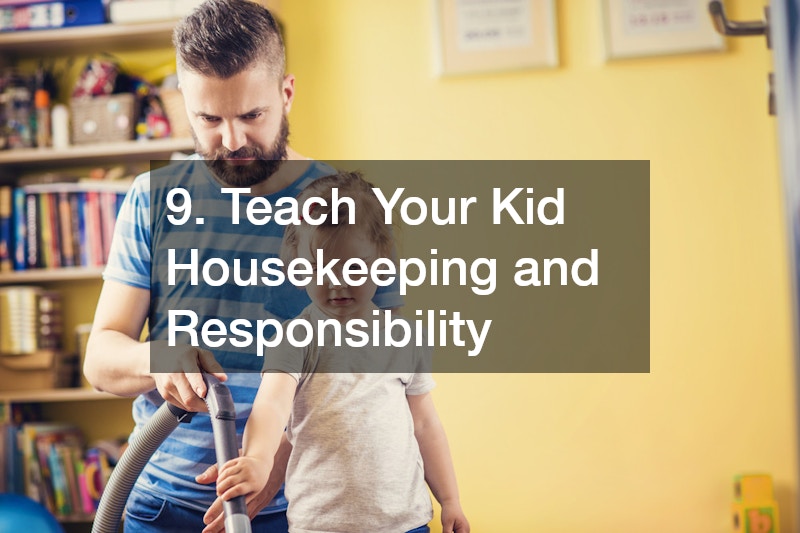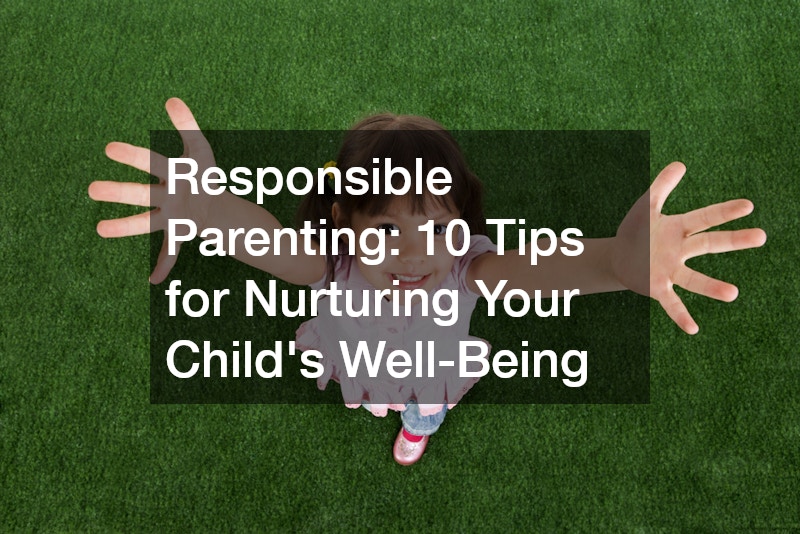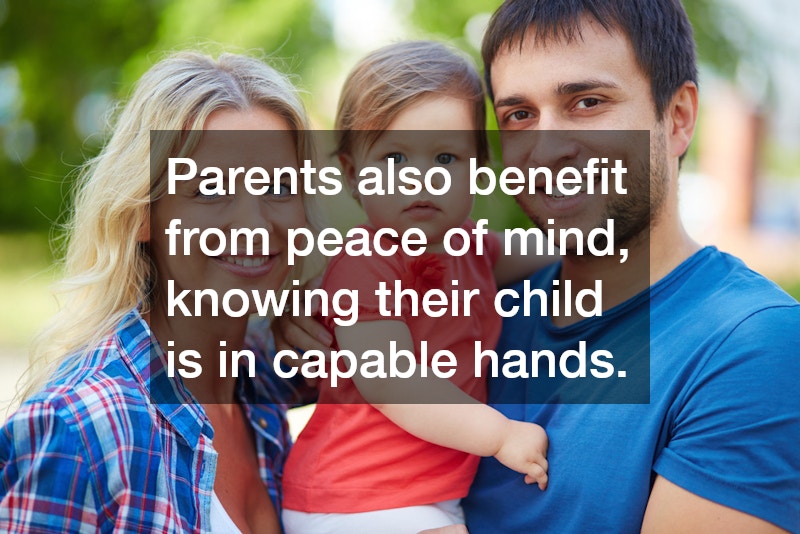Responsible Parenting: 10 Tips for Nurturing Your Child’s Well-Being
In order to ensure your child’s development and well-being, responsible parenting is essential. These 10 tips will help you nurture your child and make them a well-rounded person. You can help your child become healthy, happy, and successful by focusing on different aspects of good parenting.
Parenting requires patience, dedication, and knowledge. This article will examine various aspects of parenting quality, from education and health to safety and leisure. Each tip will help you create the best environment possible for your child to grow and develop.
Keep an eye out as we explore each tip and offer detailed insights and practical advice to help you be the best parent possible. We can all embark on a journey of responsible parenting to ensure that our children flourish in every area of their life.
1. Prioritise Your Child’s Education
Prioritising the education of your child is a cornerstone of responsible parenting. Tutoring is a great way to improve your child’s performance in school. Tutoring is tailored to the needs of your child and can help them understand difficult concepts.
In addition to academic success, tutoring can also increase your child’s self-esteem and confidence. Children who feel they understand the subject matter better are more motivated and capable of taking on challenges. Positive reinforcement is important for children’s overall development, and it can lead to a love of learning that will last a lifetime.
A quality parent is also actively involved in the educational journey of your child. Attend parent-teacher meetings, track their progress, and celebrate their accomplishments. These actions show that you care about your child’s education and want them to succeed.
Responsible parenting also means creating an environment conducive to learning at home. To help your child concentrate on homework and studying, designate a well-lit, quiet study area. Books, educational games, and internet access can help your child learn and encourage a culture that values academic excellence and curiosity.
2. Provide Them with a Nutritious and Well-Balanced Diet

A healthy diet is an important part of parenting. A healthy, balanced diet will ensure that your child receives the essential nutrients they need for growth and development. Fruits, vegetables, whole grains, lean protein, and dairy products are all part of a well-rounded diet.
Responsible parenting also means being alert to potential risks such as food poisoning. Teach your children about food safety and proper hygiene. Also, emphasise the importance of eating well-prepared meals and fresh foods. This knowledge will help to prevent foodborne illness and promote healthy eating habits for life.
Include family meals in your daily routine to promote healthy eating habits and strengthen family relationships. Shared meals are a great way to teach your child healthy eating habits. This practice will help your child develop a lifelong love of healthy food.
Quality parenting also includes educating your children about the origins and importance of sustainable eating habits. Teach your child about the importance of eating organic, locally-sourced foods. Also, discuss the impact their diet has on the environment. This holistic approach will not only improve their health but also make them more responsible towards the environment.
3. Create Fun and Engaging Experiences
It’s not just about nutrition and education; responsible parenting also involves creating an environment that is fun and stimulating. You can enrich the life of your child by providing them with enjoyable experiences. A home theatre is a place for entertainment, relaxation, and family bonding.
Investing money in fun activities shows your commitment to the happiness and emotional health of your child. For example, a home theatre can be used for family movie nights to foster shared interests and create lasting memories. These experiences can enhance a child’s feeling of belonging and security.
Quality parenting also involves finding a balance between these fun activities and other important aspects of your life. Make sure your child is exposed to a variety of educational and recreational experiences that promote a balanced lifestyle. This helps to develop a balanced individual who is able to appreciate different aspects of life.
Consider incorporating your child’s hobbies and interests into your daily routine to enhance their creativity and enjoyment. Encourage hobbies like gardening, reading, arts and crafts, music, or crafts. These hobbies are not only entertaining, but they also help to develop cognitive and emotional skills.
4. Encourage Regular Physical Activity
Physical activity is essential for the mental and physical well-being of a child, which makes it an important component of responsible parenting. Encourage your child to play outdoors and participate in sports. This will help them build their physical strength, coordination, and social skills. These benefits are beneficial to your child’s overall health and development.
Consider hiring a pool contractor for the installation of a backyard swimming pool if you have the funds. Swimming pools are a great way to get your family involved in physical activity and water safety. The pool encourages kids to be active outdoors, which is crucial for their development.
Being a good role model also includes promoting an active lifestyle. Take part in sports, hiking, or swimming with your child. You can encourage your child to develop similar habits by being active and showing that you care about health and fitness.
In addition, good parenting involves establishing a regular schedule for physical activity and reducing sedentary behaviour. Limit screen time, and encourage physical activities such as dancing, biking, or team sports. This holistic approach will ensure that your child forms a healthy and active habit for life.
5. Support Your Child’s Extracurricular Activities
Responsible parenting also includes supporting your child in their extracurricular activities. Attending their games, recitals, and events will show your child how much you care about them and their achievements. This can help boost their self-confidence and motivate them to pursue their passions.
If your child is part of a team sport, you can collaborate with a screen-printing company to create customised team shirts. This gesture will not only encourage team spirit, but it will also show your child that you care about their interests. This gesture shows your commitment to the child’s interests and creates a community.
Achieving a healthy balance between academics, extracurriculars, and parenting is also part of quality parenting. Encourage your child to follow their interests while maintaining healthy academic performance. This balance will help them develop and prepare for a successful future.
Quality parenting also means celebrating and recognising their achievements and efforts, no matter what the outcome. Praise them for their teamwork and perseverance. This will reinforce that their worth is not only based on their success but also their effort and improvement. This helps them build resilience and their self-worth.
6. Book Health Appointments Regularly
A regular schedule of appointments with healthcare professionals is a vital part of good parenting. Regular checkups with dentists, paediatricians, and other specialists will ensure that your child’s well-being is monitored, and that any issues can be addressed quickly. These appointments are important for their development and overall health.
Consider taking your child for regular grooming and haircuts to a hair salon in addition to their medical appointments. These visits encourage good hygiene and promote a positive image of your child. Cleanliness and well-groomed looks boost their self-confidence and improve social interactions.
As part of responsible parenting, you should also teach your child the importance and necessity of these appointments. Explain to your child the importance of regular checkups and grooming. Emphasise how these contribute to their well-being and health. As your child grows older, this understanding will encourage them to take charge of their health.
In addition, good parenting requires that you keep detailed records about your child’s medical history and their appointments. This will allow you to track your child’s growth, vaccinations, and medical concerns. It is important to be organised and knowledgeable about your child’s health. This will help you make informed decisions and provide continuity of care.
7. Create a Comfortable Home Environment
Comfortable home environments are essential to a child’s health and well-being. They are also a key aspect of good parenting. Ensure your home is a safe, welcoming, and temperature-regulated space where your child can thrive. It is important to address issues such as proper ventilation, temperature control, and insulation.
It is important to maintain your HVAC system, particularly during extreme weather. Air conditioning that is properly functioning will keep your child healthy and comfortable, protecting them against heat-related illnesses. A comfortable home promotes relaxation for the whole family.
A nurturing and positive home environment is also part of quality parenting. Encourage open communication, offer emotional support, and create an environment where your child can feel valued and safe. Your child’s psychological and emotional development is based on a loving and comfortable home environment.
Quality parenting also includes decluttering and organising your home to create harmony. An organised and tidy home will reduce stress and anxiety and allow your child to focus on their studies or enjoy their leisure. The physical environment is important to your child’s overall health.
8. Maintain a Safe and Protected Home
In responsible parenting, safety is the top priority. Your child’s safety and protection are dependent on a safe home. Take preventive measures to deal with any safety issues that may arise.
A safe home is maintained by engaging pest control services. Your child’s health can be at risk from pests, which may cause allergies, infections, and other problems. Regular pest control treatments eliminate these threats and create a healthy, safe living environment for your family.
Teaching your child household safety is part of responsible parenting. Teach them the importance of safety measures, like not playing with electrical sockets, avoiding sharp items, and reporting any hazards they observe. This helps them stay safe and creates a safer home environment.
Quality parenting also includes having an emergency plan in place, and making sure that everyone knows what to expect in the event of a fire or earthquake. Regularly review your plans and conduct drills. Preparedness for an emergency will help your child feel secure and act confidently in the event of an emergency.
9. Teach Your Kid Housekeeping and Responsibility

Teach your child the basics of housekeeping. These skills help them prepare for independent living and instil a sense of responsibility and self-sufficiency. As they grow, introduce them to more complex tasks.
Lawn maintenance can be incorporated into household chores to help teach children responsibility and an appreciation for nature. Teach your child to maintain a neat garden, water plants, and mow the grass. These activities will not only help your child develop practical skills, but they’ll also give them a sense that their environment is beautiful and worth preserving.
Setting expectations and offering guidance to your child as they learn these skills is part of quality parenting. Encouragement and positive reinforcement will motivate your child and instil a sense of responsibility. As your child grows up, these skills will be invaluable in helping them develop and become independent.
Also, good parenting involves teaching financial literacy through household chores. Explain the importance of budgeting, saving, and spending responsibly. Assign small tasks with allowances that will help your child understand the value of money. This will prepare them for future financial independence.
10. Educate Them About Safety
It is important to educate your child about safety. Teach your child about personal safety. This includes the importance of being vigilant, recognising hazards, and avoiding risky behaviour. They can make better decisions and be more prepared for different situations with this knowledge.
Sun protection is an important aspect of safety. To avoid UV exposure, discuss the importance of wearing sunscreen and sunshade. Preventive measures and understanding the risks of sun exposure can help protect your child’s health in the long term.
Discussing emergency procedures and safety protocol with your child is part of responsible parenting. Teach your child what to do if there is a fire or natural disaster. This knowledge gives them confidence and allows them to be prepared for any situation.
In our increasingly digitalised world, good parenting also means teaching your child about the dangers of sharing personal information online. Teach your child the dangers associated with sharing personal information on the internet, how to recognise cyberbullying, and how to practise safe internet habits. This comprehensive safety training helps them protect themselves in the digital and physical realms.
In Closing
Responsible parenting encompasses many aspects of your child’s well-being. You can create an environment that is nurturing for your child’s growth by prioritising education, a healthy diet, and encouraging physical activity.
Quality parenting also includes regular appointments, comfort at home, safety measures, knowledge of housekeeping and safety, as well as safety education. All of these efforts will contribute to the overall development of your child and prepare them for a well-rounded and successful future.
You’ll be on your way to raising happy, healthy, and successful children if you follow these tips. Consistency, patience, and a sincere commitment to your child in all aspects of their life are the keys to good parenting.




Post Comment